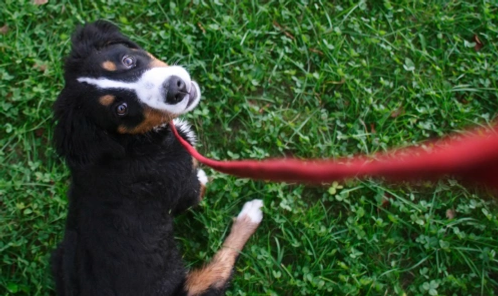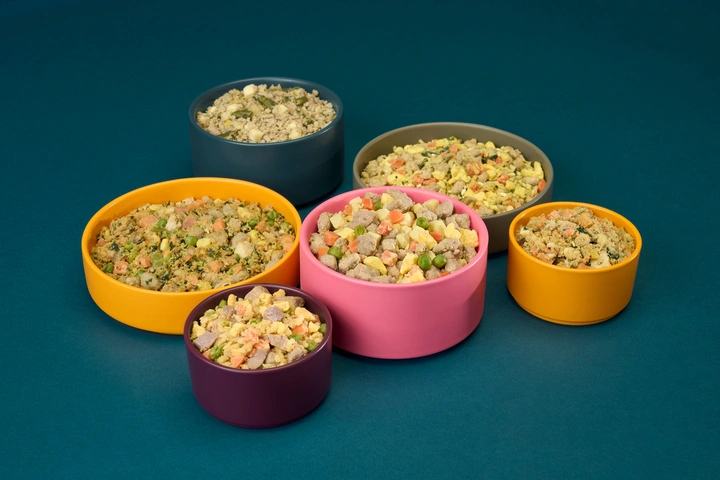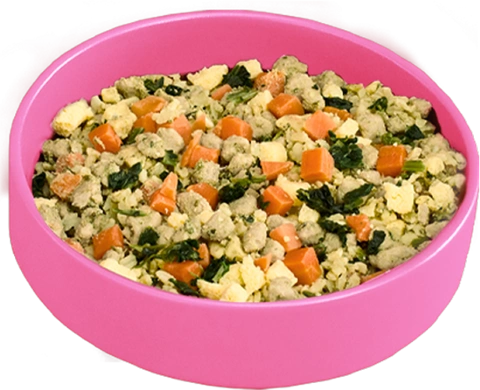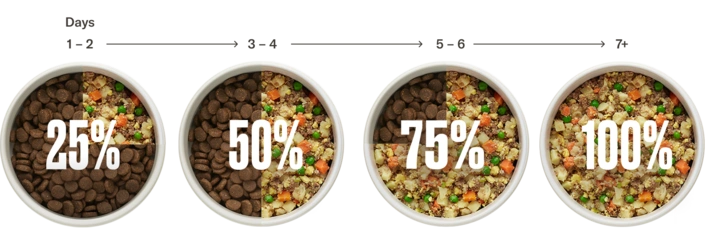Fresh diets are different from what most people are currently feeding their pets. As a result, we expect that there are going to be some changes that may be different from what you have expected with food changes before. For instance, within the first weeks, as this careful transition happens, you may notice two major changes: the first is in behavioral changes centered around food and mealtimes, and the second is changes in digestion.
So with respect to behavior, fresh diets tend to be very palatable. Your dog is going to love the food and as a result, they may try to tell you that they want more of it. Because we have carefully portioned it in the beginning, this is just a behavior to try to get more food because they are excited about the fresh. It does not mean that they are hungry or not getting enough nutrients; it is simply that there is a change in their food and they are excited about it, so we recommend following the transition very carefully so that we do not make your dog overweight. That is the last thing that we want to do, and while we are doing that in that transition, you may also notice that there may be a change in stool quality.
Over the long term, there should be an improvement in the consistency of the stool, but in the short term: as the bacteria (that are a key component of both your dog’s immune system and digestive function) adapt to these different nutrients and ingredients, it may cause a loosening of the stool for that first week or so. This is perfectly normal and not something to be alarmed at. It does not mean that the stool is a function of the product being spoiled or not the best for your dog.
It is simply that new bacteria have to come in to digest these different nutrients. In addition, any time a dog changes its food, one of its responses can be occasionally a brief period of vomiting. This may be due to the higher fat content within some of the diets that important for skin and coat health but again (especially) different from some kibble diets. If that happens once or twice and your dog is acting normally, that is not a cause for concern.
We hope that during this transition you will keep these behavioral and digestive changes in mind and not be overly alarmed by them. Certainly if they persist, contact our Pet Support Team. We would be happy to guide you through it or recommend whether or not you should see your veterinarian about something else that could be going on with your pet unrelated to the dietary change.



